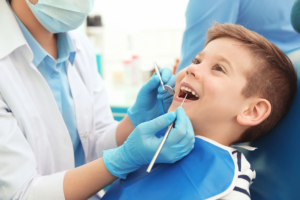In the modern era, the correlation between diet, lifestyle, and teeth health has become increasingly evident. Dental hygiene and pediatric hygienists play a pivotal role in educating patients and their families about these critical connections. As dental professionals, providing comprehensive, up-to-date content on how dietary habits and lifestyle choices affect oral health is essential for maintaining a proactive approach to preventive care.

The Role of Diet in Dental Health
Nutritional Choices and Oral Wellness
Diet significantly impacts oral health, influencing everything from tooth enamel strength to gum health. For teeth, educating patients about the importance of a balanced diet is paramount. Foods rich in calcium, such as dairy products and leafy greens, support the maintenance of strong teeth and bones. Meanwhile, phosphorus-rich foods like nuts and lean meats are essential for enamel protection.
However, it’s not just about what we eat, but also how frequently we consume certain foods. Frequent snacking, particularly on sugary or acidic foods, can lead to an increased risk of cavities. Sugars and starches provide a food source for harmful bacteria in the mouth, which produce acids that erode tooth enamel. Pediatric hygienists should particularly emphasize the dangers of sugary snacks and beverages, as children’s developing teeth are especially vulnerable.
Hydration and Oral Health
Adequate hydration is another critical component of teeth hygiene. Water helps wash away food particles and bacteria, reducing the risk of decay and gum disease. Additionally, water with fluoride—a mineral added to many public water supplies—can strengthen tooth enamel and prevent cavities. Dental should encourage patients to choose water over sugary drinks and educate them about the benefits of fluoridated water.
Lifestyle Choices and Their Dental Implications
Smoking and Oral Health
Smoking and the use of tobacco products have long been associated with numerous adverse health effects, including severe oral health issues. Smoking can lead to gum disease, tooth loss, and even oral cancer. For dental, it is crucial to provide resources and support for patients looking to quit smoking. Pediatric hygienists should also be vigilant in educating young patients about the risks associated with tobacco use, fostering early prevention.
Oral Hygiene Practices
Regular and proper oral hygiene practices are fundamental to maintaining good health. Dental clinic should emphasize the importance of brushing teeth at least twice a day with fluoride toothpaste and using floss or interdental cleaners daily. Pediatric hygienists can play a crucial role in teaching children proper brushing and flossing techniques, making these habits a regular part of their routine.
Stress and Its Impact on Oral Health
Stress is an often-overlooked factor that can have significant implications for oral health. Stress can lead to bruxism (teeth grinding), which may result in tooth wear, fractures, and even TMJ disorders. Furthermore, stress can weaken the immune system, making individuals more susceptible to infections, including periodontal (gum) disease. Dental clinic should be proactive in discussing the impact of stress with their patients and provide guidance on stress management techniques.

Preventive Measures and Patient Education
Sealants and Fluoride Treatments
Preventive care is a cornerstone of effective dental hygiene. Dental should advocate for the use of sealants and fluoride treatments, particularly for children. Sealants can provide a protective barrier on the chewing surfaces of molars, preventing decay. Fluoride treatments, both in-office and through at-home products, help remineralize tooth enamel and prevent cavities.
Customized Dietary and Lifestyle Recommendations
Each patient is unique, and so are their dietary and lifestyle needs. Dental hygiene clinics should offer personalized consultations to assess individual risk factors and provide tailored recommendations. For instance, a patient with a history of gum disease may benefit from specific dietary adjustments to reduce inflammation, while a pediatric patient prone to cavities might need additional fluoride treatments.
Conclusion
In conclusion, the interplay between diet, lifestyle, and dental hygiene is complex and multifaceted. As trusted professionals, dental clinic and pediatric hygienists have a responsibility to provide patients with comprehensive, accurate information. By promoting healthy dietary choices, discouraging harmful habits, and advocating for regular preventive care, these professionals can significantly impact their patients’ oral and overall health.
As the landscape of teeth care continues to evolve, staying informed and proactive is crucial. Incorporating the latest research and best practices into patient education not only enhances the quality of care but also empowers patients to take control of their teeth health. By fostering a collaborative, informed approach to oral hygiene, teeth professionals can ensure that their patients enjoy a lifetime of healthy smiles.